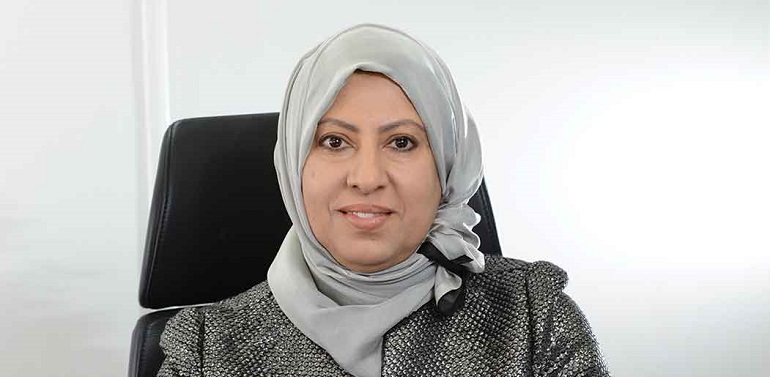Experts
Committed to Excellence – PDO’s Corporate Planning Director Ruqaiya Al Hinai

PDO is determined to stay the course and support Oman’s development despite the low oil price environment. Here, PDO’s Corporate Planning Director Ruqaiya Al Hinai talks at length about her important job, the complexity of the business, and how her directorate is responding to the challenges and meeting stakeholders’ needs. Excerpts of the interview:
THIS YEAR YOU HAVE COMPLETED 25 YEARS IN PDO. HEARTIEST CONGRATULATIONS TO YOU ON BEHALF OF THE OGR TEAM. AS YOU LOOK BACK AT YOUR JOURNEY, WHAT HAVE BEEN THE KEY VALUES FOR YOU?
Honesty and integrity are core values which I hold very high. They ensure that within our society and our work, we have a clear and level playing field that offers everyone the opportunity to contribute to the best of their ability and serve the nation.
Secondly, I value diversity and inclusion. When you offer people a chance to be heard, it not only improves the plan, but it also strengthens team focus and ownership. It also helps people to understand common objectives while bringing different perspectives to the table. At the same time, individuals and businesses need a clear focus and commercial eye to drive performance and deliver as promised.
Finally, one should be mindful of the environment. As the nation develops, our use of land will become more intensive.
In Oman, “beauty has an address.” Let’s keep it that way.
AS THE CORPORATE PLANNING DIRECTOR, WHAT IS YOUR MANDATE? WHAT IS YOUR ROLE IN THE COMPANY AND WHAT ARE YOUR KEY RESPONSIBILITY AREAS?
Besides managing the internal and external technical interfaces, I am responsible for the co-ordination of PDO’s business plan and economics, hydrocarbon accounting of oil and gas, crude shipment scheduling, new technology implementation plans, business improvement, and gas and water management, as well as renewable energy.
My team works across the full spectrum of PDO’s activities – often behind the scenes to connect the different directorates in PDO. A good example is the alignment of priorities of proposed business plan activities. Nearly all of PDO’s activities are profitable, but our shareholders have funding constraints, particularly in today’s tough oil price environment. PDO needs to phase activities, to align expenditure and production with these needs. To ensure that the final proposed programme remains robust in PDO’s matrix organisational structure, we seek buy-in from both the line and function, incorporating both in-house and external capability and exposures.
A separate team is involved with production accounting, crude lifting and third party interfaces. For example, the Mina Al Fahal terminal is designed for the transfer of hydrocarbons, not storage. With slowly changing crude composition, water settling takes longer, limiting our flexibility to cater for late tanker arrivals. A late loading of a tanker is bad; however, a “tank tops” occurrence (a halt to the country’s oil exports) is unacceptable. The risk may be low, but the reputational damage can be huge.
The New Technology team, which I also oversee, is championing new solutions to allow PDO to make step-changes in efficiency or unlock new value. Having an idea is good, but implementing a good idea across the Company creates the value. This requires strong change management and full asset buy-in, a challenging task. At the same time, the team fosters relations with Sultan Qaboos University (SQU) and aligns efforts with our shareholders, ensuring that the latest technology is brought to bear for PDO’s advantage.
Finally, water handling and power consumption are often seen as oil production side-streams, evaluated from a PDO cost perspective. Two thirds of our power consumption relates to producing or injecting water. Now take a different perspective: for every cubic metre of gas saved, Oman can add value in another way, be it economic development of the nation or incremental revenue generation through exports. Gas is therefore a precious resource and we need to increase efforts to conserve it, and in doing so support our nation’s development. In short, any gas we save can be channelled into other parts of our economy and society.
KEEPING IN MIND THE SIZE AND COMPLEXITY OF PDO’S BUSINESS AND OPERATIONS, WHAT ARE IN YOUR VIEW THE MAIN CHALLENGES FOR PDO?
First of all, let me place the scale of PDO’s operations in perspective. We manage the operations for 1.25 million barrels of oil equivalent production per day from 184 oil fields and 339 reservoirs. Together with third party crude, PDO manages the transportation and shipment of 330 million barrels per year. Our annual spend exceeds $7 billion and looking at the oil alone, PDO operates around 8,000 active wells, over 18,000 kms of pipelines and flowlines, and 21 production stations. PDO directly employs around 9,000 staff and more than 45,000 indirectly through our contractors.
-

 Banking & Finance2 months ago
Banking & Finance2 months agoOman Oil Marketing Company Concludes Its Annual Health, Safety, Environment, and Quality Week, Reaffirming People and Safety as a Top Priority
-

 News2 months ago
News2 months agoJamal Ahmed Al Harthy Honoured as ‘Pioneer in Youth Empowerment through Education and Sport’ at CSR Summit & Awards 2025
-

 OER Magazines2 months ago
OER Magazines2 months agoOER, December 2025
-

 News2 months ago
News2 months agoAI Security Conference 2025 Hosted by Securado Highlights the Changing Cybersecurity Landscape
-

 Insurance1 month ago
Insurance1 month agoSupporting Community Wellness: Liva Insurance Sponsors Muscat Marathon 2026 with Free Health Checkups
-

 Interviews1 month ago
Interviews1 month agoEXCLUSIVE INTERVIEW: TLS Rebranding Marks Strategic Leap Toward Innovation, Sustainability & Growth
-

 Insurance4 weeks ago
Insurance4 weeks agoLiva Insurance Supports Community Wellness Through “Experience Oman – Muscat Marathon 2026”
-

 Banking & Finance4 weeks ago
Banking & Finance4 weeks agoA New Platform for SME Growth: Oman Arab Bank Unveils Tumouhi































You must be logged in to post a comment Login